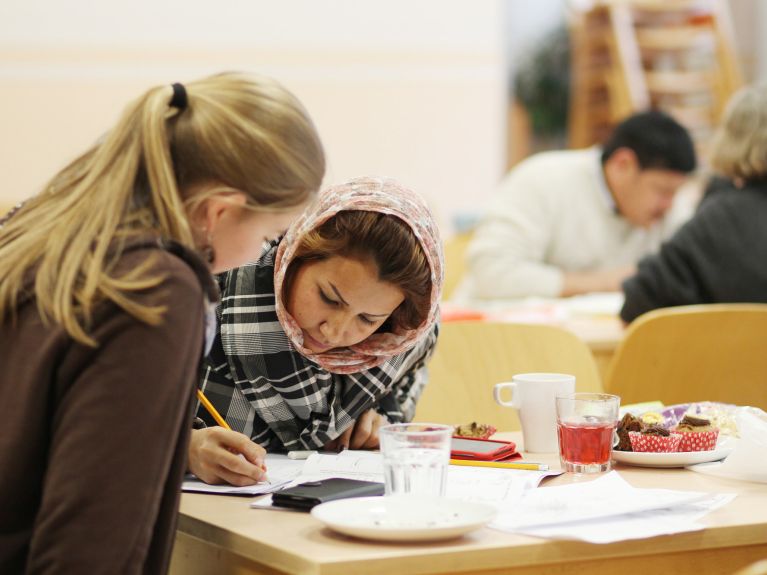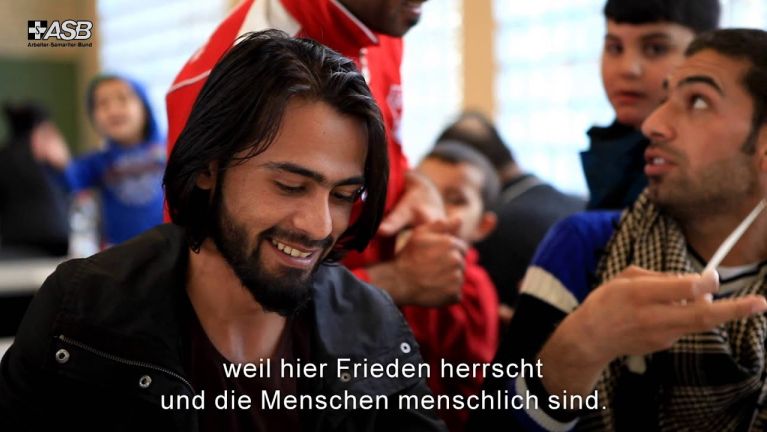Help turns into friendship
The number of volunteers working with refugees is declining, but their commitment is continuing.

Names sprang up like Willkommen in Ehrenfeld (Welcome to Ehrenfeld), Charlottenburg hilft (Charlottenburg helps) or Projekt Ankommen (The Arrival Project): When hundreds of thousands of refugees arrived in Germany in 2015, people throughout the country spontaneously came together in initiatives. Their aim was to support those seeking refuge, at first with basic essentials such as food and clothing, then with learning German and dealing with authorities.
The readiness to help in the ‘refugee summer’ of 2015 was enormous. What has become of the volunteer support five years later?
“The support from civil society for refugees has become well-established,” says Sebastian Beck from the Federal Association for Residential and Urban Development (vhw). This is the conclusion of a survey carried out by the association in 2020. Almost every second initiative that was interviewed for the study regards itself as “stable”. And although many volunteers have gradually withdrawn, a firm core still remains.
Dieses YouTube-Video kann in einem neuen Tab abgespielt werden
YouTube öffnenThird party content
We use YouTube to embed content that may collect data about your activity. Please review the details and accept the service to see this content.
Open consent formHow has volunteer commitment changed?
According to the vwh survey, the volunteers have changed from “spontaneous emergency helpers into professional, sometimes specialized neighbourhood and integration supporters.” At the same time many people have transformed the nature of their involvement. Instead of continuing as part of an official public initiative, they are accompanying refugee families on a private basis. Friendships have often developed between the refugees and the helpers.
Which kind of challenges do volunteers face?
About every fourth person interviewed in the vhw survey speaks of obstacles due to bureaucratic processes. Financing presents another challenge. Despite this, two-thirds of those interviewed said cooperation with their local authorities was supportive. For instance: “We found the right contacts quite quickly, and they accompanied our work positively,” was the response from Willkommen in Westend (Welcome to Westend) in Berlin.
You would like to receive regular information about Germany? Subscribe here:


